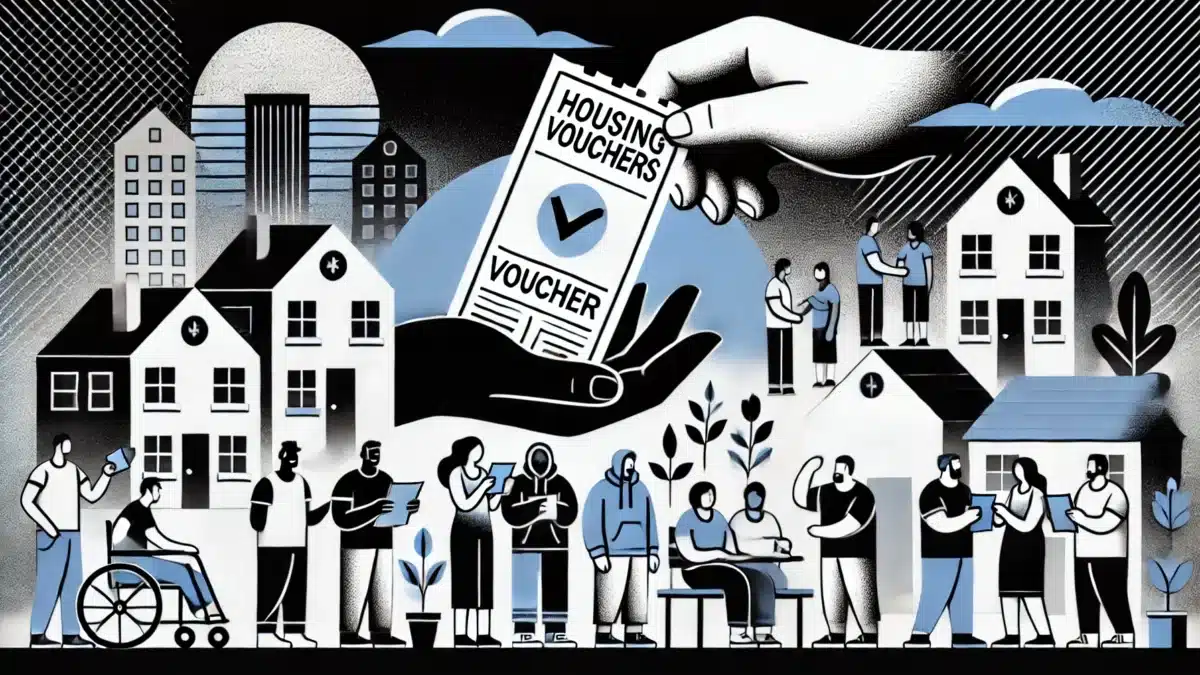
Is Rent-to-Own Too Good to Be True?
April 30, 2020
50% of Applicants Can’t Use Their Section 8: Protect Yourself!
September 15, 2020Housing vouchers, especially through programs like Section 8, provide essential support to help people afford decent housing. However, despite these vouchers’ critical safety net, many individuals and families lose their vouchers each year. Understanding why this happens can help you avoid the same pitfalls.
The Top Reasons People Lose their Housing Vouchers
1. Failure to Report Income Changes
Housing vouchers are based on your income. If you experience an increase in income and report it to your housing authority, you can avoid losing your voucher. This is because your eligibility and the amount of assistance you receive depend on your reported income. Unreported income changes can lead to:
- Investigations that might classify the failure as fraud.
- Retroactive repayments if the housing authority finds out you were overpaid.
- Immediate termination of the voucher if deemed severe.
To avoid this, you must:
| Always inform your housing authority within their required timeframe (typically 10-30 days) if your income changes. |
| Keep records of the communication, whether by email, mail, or online portals. |
2. Not Following Lease Terms
Section 8 vouchers require that you comply with your lease agreement. Violating the lease, even accidentally, can lead to eviction and voucher termination. Common lease violations include:
- Subletting without permission.
- Damaging the property beyond normal wear and tear.
- Consistently paying rent late.
- Allowing unauthorized people to live in the unit.
Landlords are obligated to report these violations to the housing authority, which could result in:
- A warning or notice to correct the violation.
- Termination of the voucher if the issue isn’t resolved.
To prevent this:
| Understand your lease thoroughly. |
| Communicate with your landlord about any potential issues. |
| Address problems, such as late payments or damage, promptly before they escalate. |
3. Failure to Recertify Annually
Every year, voucher holders are required to complete an annual recertification. This process involves verifying your income, family composition, and other eligibility criteria. Missing this deadline can result in the loss of your voucher. Housing authorities are usually strict about this requirement, and failure to submit the necessary paperwork in time could automatically disqualify you from the program.
To avoid this:
| Mark the recertification date on your calendar. |
| Gather all necessary documents, such as pay stubs, tax returns, and bank statements, well in advance. |
| Follow up with your housing authority to ensure they have received your documents. |
4. Unauthorized Household Members
Section 8 requires that only approved household members live in the subsidized unit. Adding someone to your household without prior approval from the housing authority is a violation of the program’s rules. This includes:
- Allowing extended family members or friends to stay long-term.
- Not reporting a new spouse, partner, or child.
Housing authorities often check to make sure the listed household members match who’s actually living in the unit. If unauthorized occupants are discovered, it could result in voucher termination.
To avoid this:
| Always notify your housing authority if you want someone to move in. |
| Gather all necessary documents, such as pay stubs, tax returns, and bank statements, well in advance.Understand the rules around guest stays and temporary visitors. |
5. Criminal Activity
Voucher holders are required to refrain from engaging in any criminal activity. Certain criminal offenses, particularly drug-related and violent crimes, can result in immediate termination of your voucher. The housing authority takes these violations very seriously, as the program is designed to support safe and stable communities.
Common offenses that lead to voucher loss include:
- Drug possession or trafficking.
- Violent crimes such as assault.
- Fraud, including falsifying documents during the application process.
Some housing authorities also include stricter rules for criminal activity near subsidized property or the involvement of household members in illegal activities.
To avoid this:
| Maintain a clear legal record. |
| Understand the housing authority’s rules regarding criminal activity. |
| If applicable, seek legal counsel to explore reinstatement options if criminal charges have been resolved. |
6. Fraudulent Activity
Housing fraud encompasses a wide range of actions, but in the context of housing vouchers, it most commonly refers to:
- Falsifying income information to qualify for higher assistance.
- Subletting your subsidized unit while living elsewhere.
- Failing to report significant changes in household composition.
Fraud is grounds for immediate voucher termination. If the fraud is substantial, it can lead to prosecution and repayment of any assistance you received improperly. Housing authorities frequently conduct audits and checks to ensure voucher holders are following the rules.
To avoid this:
| Always be honest on your housing forms and with your caseworker. |
| Report any changes in income, household composition, or employment status promptly. |
| If you’ve made a mistake, rectify it as soon as possible with your housing authority. |
7. Uncooperative Behavior with the Housing Authority
The housing authority must be able to communicate with you throughout your participation in the voucher program. If you fail to respond to notices, requests for documentation, or appointments, your voucher can be terminated. Uncooperative behavior includes:
- Ignoring requests for information or meetings.
- Failing to provide updated contact information.
- Not allowing inspections of your unit.
The housing authority is required to inspect your home periodically to ensure it meets the program’s standards. Refusing these inspections or delaying them can also result in voucher loss.
To avoid this:
| Maintain open and timely communication with your housing authority. |
| Respond to all requests for documentation or information. |
| Keep your housing authority updated with your current contact details. |
8. Repeated Rent Delinquency
While Section 8 helps cover a portion of the rent, voucher holders are still responsible for paying a portion of their rent each month. Repeated failure to pay your portion on time can lead to eviction, and subsequently, the loss of your voucher.
Common reasons for rent delinquency include:
- Job loss or reduction in income.
- Mismanagement of finances.
- Misunderstanding the payment agreement with the landlord.
Housing authorities and landlords may give you a grace period to correct the issue, but repeated violations will lead to more serious consequences.
To avoid this:
| Set up automatic rent payments if possible. |
| Communicate with your landlord and housing authority if you foresee any financial difficulties. |
| If you lose your job or face a significant drop in income, notify the housing authority immediately to reassess your portion of the rent. |
9. Failure to Allow Inspections
Housing authorities are required to inspect Section 8 properties to ensure they meet minimum health and safety standards. You must allow these inspections and ensure that any issues identified during the inspection are resolved in a timely manner.
Failing to allow an inspection, or not fixing problems identified during an inspection, can lead to the termination of your voucher. Inspections typically cover:
- Electrical and plumbing safety.
- General cleanliness and upkeep.
- Structural integrity.
To avoid this:
| Be proactive about property maintenance. |
| Work with your landlord to address any issues that may arise. |
| Allow inspection access as scheduled and cooperate with the inspector. |
Conclusion
Losing a housing voucher can be devastating, especially for families relying on the assistance to maintain stable housing. By understanding the common reasons vouchers are revoked, you can take steps to avoid these pitfalls. Always maintain open communication with your housing authority, report changes promptly, and follow the program’s rules. It’s far easier to keep your voucher than to reapply once it has been lost.
By being proactive and staying informed, you can ensure that you and your family continue to benefit from the housing assistance you need.




